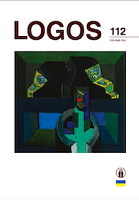Aquinas and Heidegger’s Phenomenological Reduction of Scholasticism
Aquinas and Heidegger’s Phenomenological Reduction of Scholasticism
Author(s): John F. X. KnasasSubject(s): Metaphysics, Philosophy of Middle Ages, Contemporary Philosophy, Existentialism, Phenomenology, Ontology
Published by: Visuomeninė organizacija »LOGOS«
Keywords: real distinction as res et res; actus; accident; sense realism; productive comportment;
Summary/Abstract: I assess a last Heideggerian critique of Aquinas. Using Suarez, Heidegger critiques the Thomistic real distinction between essence and existence. The distinction is presented as a distinction between two things (rei). The critique is as follows. If a thing is a being by reason of an addition, then the added thing is a being by a third thing ad infinitum. Because of the infinite regress we never have completion and so never have a thing. I argue that Suarez’s critique assumes that every addition to a thing is a thing in the first sense. But additions to things can be acts that are accidents, or attributes. For example, the complexion of the man and the heat of the coffee add to these things. Moreover, acts in this sense do what they do without requiring an addition. Color colors. Heat heats. Hence, an explanation of the colored man is some color and an explanation of the hot coffee is some heat. I conclude by arguing that Aquinas considers existence to be another act of the thing along with its color or temperature and so avoids the regress and Heidegger’s phenomenological reduction of Scholasticism to Dasein’s productive comportment.
Journal: LOGOS - A Journal of Religion, Philosophy, Comparative Cultural Studies and Art
- Issue Year: 2022
- Issue No: 112
- Page Range: 23-28
- Page Count: 6
- Language: English

